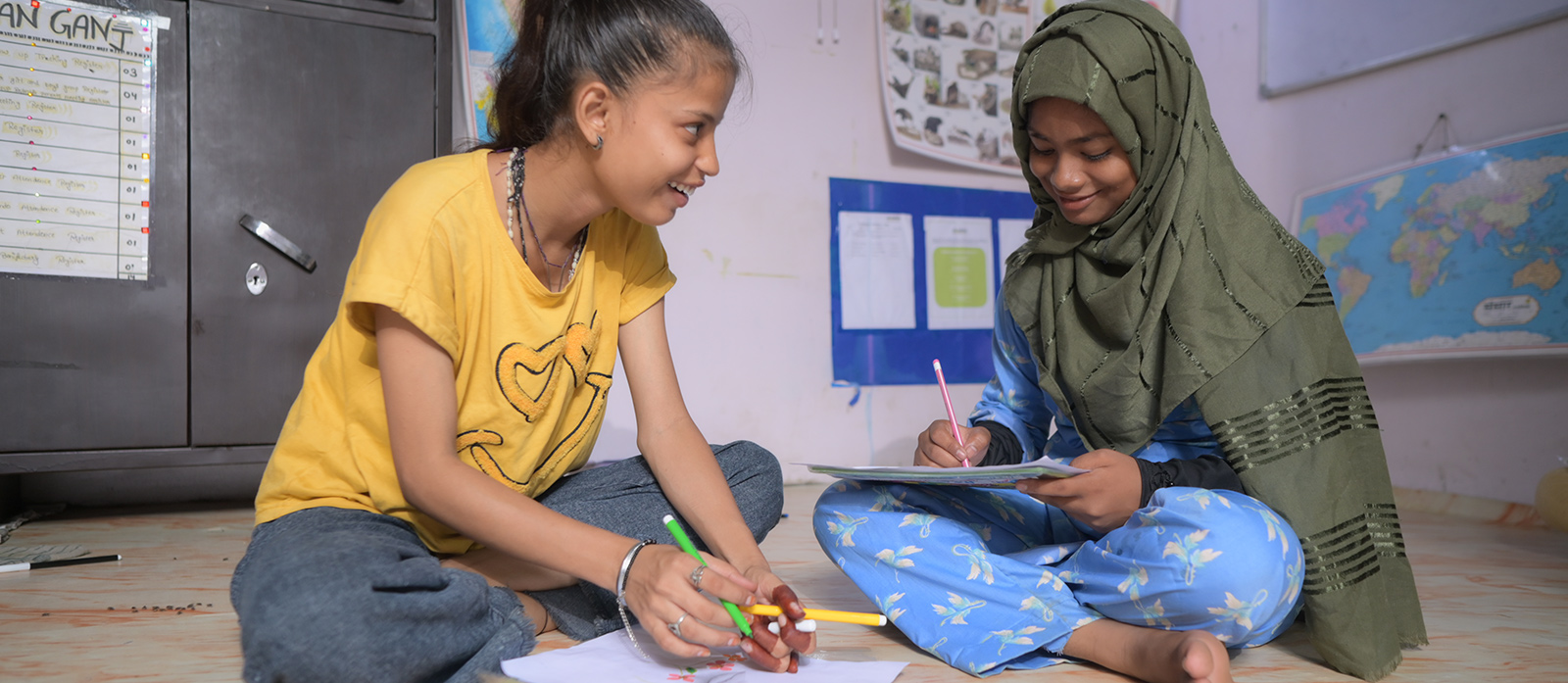From groundbreaking educational advancements to vital health and welfare initiatives, this month’s headlines spotlight key strides in child-centric policies across India. As AI revolutionizes early learning, maternal and child health continues to improve, and authorities work to create inclusive education systems, young minds remain at the heart of these developments. From students fostering a passion for space science to communities uniting against addiction, these stories underscore the collective efforts shaping a safer, healthier, and more empowered future for children. Dive into #What’sInAHeadline for the latest updates driving meaningful change for the nation’s youth.
1. AI-Powered Tutor ‘Appu’ Launched to Revolutionize Early Childhood Education in India
Non-profit organization Rocket Learning has introduced ‘Appu,’ an AI-driven tutor designed for children aged 3 to 6 in India. Appu offers personalized, conversational learning experiences, initially in Hindi, with plans to expand to 20 additional languages, including Marathi and Punjabi. Leveraging advanced Large Language Models (LLMs), Appu aims to enhance pre-literacy, numeracy, and social-emotional skills. Supported by a $1.5 million grant from Google.org in 2023, the platform aspires to reach 50 million families by 2030, including those served by government-run Anganwadi centers and preschools.
2. India’s Maternal and Child Health Indicators Show Remarkable Progress
India has achieved significant improvements in maternal and child health over recent years. The Maternal Mortality Ratio (MMR) declined from 130 per 100,000 live births in 2014-16 to 97 in 2018-20. This 25% reduction is attributed to initiatives like the National Health Mission, which emphasizes early pregnancy registration, comprehensive antenatal care, and timely referrals for high-risk pregnancies. Additionally, the Pradhan Mantri Matru Vandana Yojana provides financial incentives to pregnant and lactating women, promoting better health and nutrition. Collectively, these efforts have substantially enhanced maternal and child health outcomes across the nation.
3. PM Modi Advocates for Reduced Academic Pressure on Students
In a recent podcast with Lex Fridman, Prime Minister Narendra Modi emphasized that academic scores alone do not define a student’s true abilities and that exams are merely a small part of the larger journey of knowledge and self-growth. He criticized the societal mindset that treats children as trophies, leading to undue pressure from families and schools to achieve high ranks. PM Modi advised parents to avoid using their children as status symbols and to understand that life is not just about taking exams. He also encouraged students to focus on genuine learning and self-confidence, rather than viewing exams as life-defining moments.
4. Madurai Students Engage in Space Science, Pray for Sunita Williams’ Safe Return
Students at Singarathoppu Corporation Middle School in Madurai immersed themselves in space science education while expressing hopes for astronaut Sunita Williams’ safe return to Earth. Donning masks of renowned scientists like Albert Einstein and APJ Abdul Kalam, they viewed videos about spacecraft and the International Space Station (ISS). Williams, initially on a brief test flight, faced an unexpected nine-month stay at the ISS due to technical issues. The school’s headmaster, Joseph Jeyaseelan, emphasized using current events to enhance students’ understanding of space science beyond textbooks. Plans are underway for a space science exhibition to further nurture their interest.
5. Delhi Conducts Computerized Draw for School Admissions of Children with Special Needs
The Directorate of Education (DoE) in Delhi recently conducted a computerized draw of lots for entry-level admissions of children with special needs (CWSN) into private unaided recognized schools. Out of approximately 6,400 available seats, only about 1,300 were filled, leaving around 5,100 seats vacant. Specifically, 689 candidates secured nursery or pre-school seats, 226 were admitted to kindergarten, and 392 to Class 1. This computerized process aims to ensure transparency and fairness in the admission of students under the CWSN, economically weaker section (EWS), and disadvantaged group (DG) categories.
6. Kerala Launches Initiative to Address Drug Addiction Among Coastal Youth
The Kerala State Human Rights Commission (SHRC), under the leadership of Chairperson Justice Alexander Thomas, has launched a one-year project targeting drug and mobile addiction among children aged 10 to 18 in the coastal villages of Anchuthengu and Mariyanadu. In collaboration with Loyola College of Social Sciences, the initiative includes comprehensive surveys, de-addiction treatments, awareness programs, home visits, and seminars for students, teachers, and guardians. A whistleblower group will also be established to alert authorities about drug-related issues. The project aims to identify and counteract addiction at an early stage, utilizing educational, health, and legal resources from a human rights perspective.
7. UP Government Establishes Anganwadi Centers in Every Village to Enhance Child Welfare
Under Chief Minister Yogi Adityanath’s leadership, the Uttar Pradesh government is constructing Anganwadi centers in every village to combat malnutrition and promote early childhood education. Since 2018, over 19,000 centers have been completed, with an additional 9,448 under construction. The project has received an investment of ₹12,865.58 lakh, ensuring facilities like play areas, toilets, and clean drinking water. These centers aim to provide safe environments for children, empower women through local employment, and strengthen rural infrastructure, reflecting the government’s commitment to social welfare and rural development.





